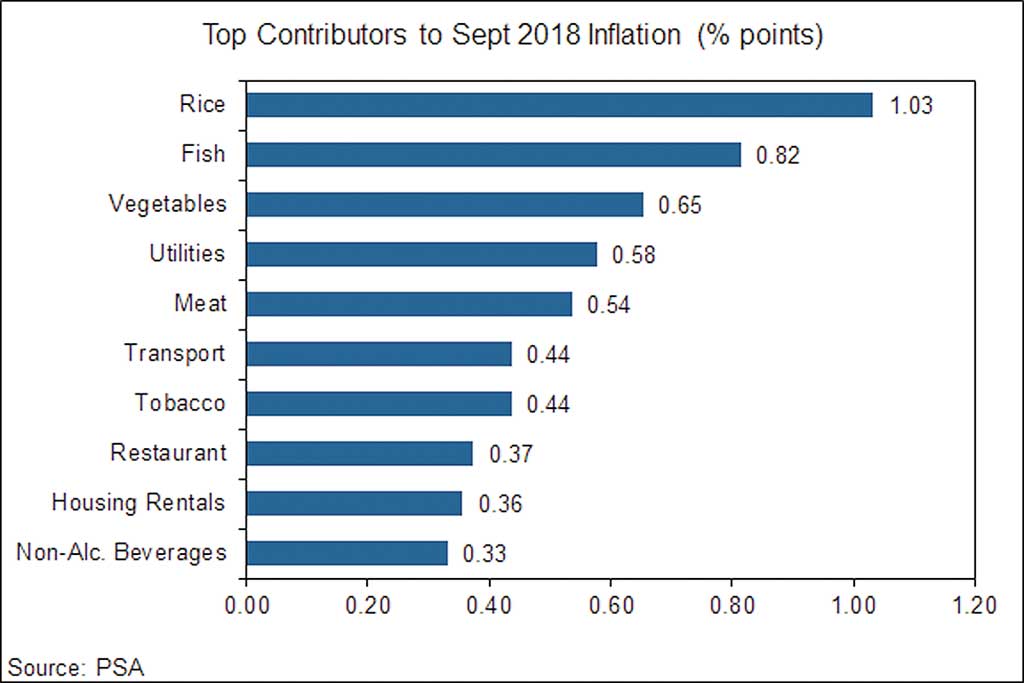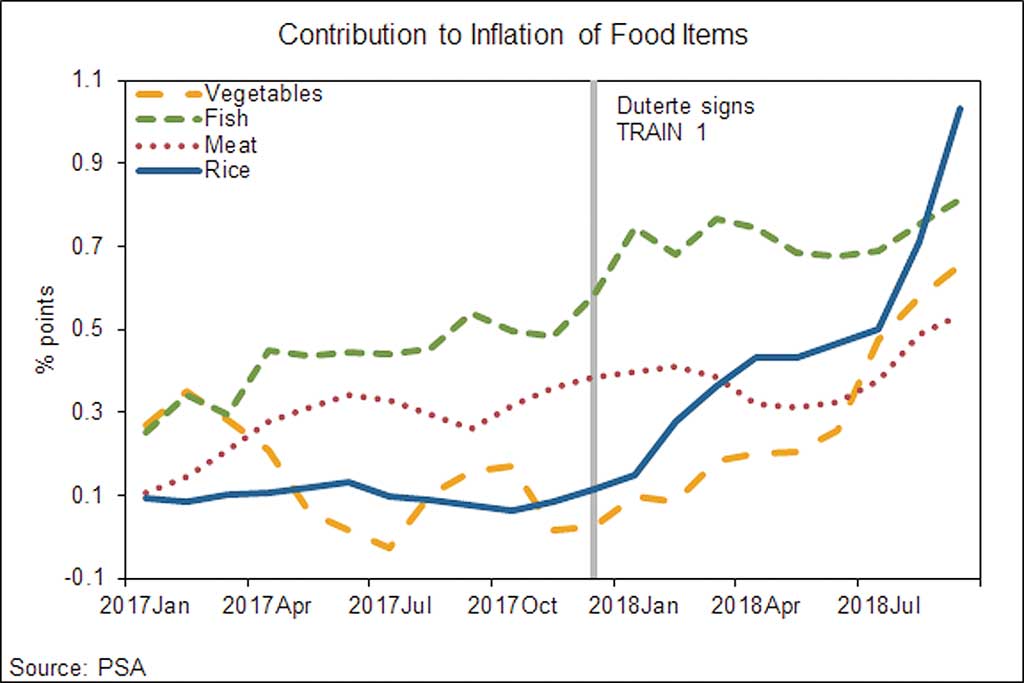
There has been much hand-washing among our legislators on TRAIN 1. The unfortunate part about this is they were responding to fake news.
Much of this is likely limbic (also referred to as lizard and “fight or flight”) thinking which has sadly characterized much of discourse lately, fanned by social media and live news. Tweets, live feeds, and text messages or phone calls for instant reactions. They discourage deliberate thought grounded on evidence and serious research, which at the same time educate the public.
Though often together, this shouldn’t be confused with the kind of more calculated political moves that pander to voters, short-term fixes at the expense of more long-term public good. The classic case of this is wasteful spending that leads to unsustainable fiscal deficits, macro instability, hyperinflation, ultimately immiseration of the people, especially the poor. We have seen such a sorry tale unfold in Chavez’s Venezuela and Mugabe’s Zimbabwe.
Serious analysts observed this may have been at play here with the passage of the costly P50 billion-a-year “free tertiary education” in the SUCs bill. Despite fact-based research by government’s think tank, the Philippine Institute for Development Studies, and the forceful well-argued opposition by the Secretaries of Finance, Economic Planning, and Budget, and the head of CHED, this populist bill passed.
Evidence was disregarded that this badly targeted, hugely costly bill is faulty use of public resources for educating the young for future jobs, especially the poorest. This may also corrode the quality of education and training systems as students and teachers move away from private institutions to quality-challenged SUCs, some no more than diploma mills (see the PIDS study and the economic managers’ statements.).
The folly of a bill costing so much and so narrowly focused on free tuition in SUCs became even clearer to me upon listening to a panel on “Technology and Inclusion in Asia” during the recent Annual Conference of the Federation of ASEAN Economics Associations. The panel consisted of PCC Chair Arsenio Balisacan, ADB Chief Economist Yasuyuki Sawada, Professors Emmanuel Esguerra (UP), Erika Legara (AIM), Euston Quah (Nanyang Technological University) and Ayala Corporation Chairman Jaime Augusto Zobel de Ayala.
My key takeaway from them is that to meet the challenges of technological disruption on our economy (especially BPO and manufacturing ) and to find future jobs for our youth, “it will be important for the private sector (industry and academia) to work hand in hand with the government to plan out a roadmap to create both a national upskilling program and to create a longer term educational reform program to design education and training for a technologically enabled and digitally-led economy.”
Similar observations as that bill have been made of other inadequately studied and targeted programs, e.g. free irrigation, increasing the pensions of SSS retirees, VAT exemptions for senior citizens, more so-called pro-labor legislation that lead to rigidity in labor markets, less investments and jobs. Contrast these to the Conditional Cash Transfers program, started four administrations ago, which was well studied, carefully piloted, and now showing good results in reducing poverty and keeping children in school.
Election season is upon us, however, and perhaps we should be more understanding of populist knee-jerk moves. An appeal to our politicians: please study the premises; thrash the fake news.
FAKE NEWS ON TRAIN
Fake News 1: TRAIN caused inflation
In September 2018, the top 10 contributors to inflation, largely raw food items, accounted for 5.5 percentage points (ppt) of the 6.7 percent inflation (see Figures 1 and 2). Of these products, the DOF estimates that TRAIN contributed around 25% of personal transport inflation, 5% of utilities inflation, 100% of non-alcoholic beverages inflation, and 20% of tobacco inflation.


Overall, TRAIN’s contribution to inflation is around 0.4 to 0.7 ppt. The Department of Finance (DOF), National Economic and Development Authority (NEDA), and Bangko Sentral ng Pilipinas (BS) all arrived at comparable estimates using different methods to model the legislated tax increases.
In comparison, rice prices alone accounted for 1.03 ppt of the 6.7% inflation rate.
Fake News 2: TRAIN has not yielded collections as targeted.
“Falsehood flies, and the Truth comes limping after it,” Jonathan Swift once wrote. It was hyperbole three centuries ago. But it is a factual description of the post-truth society we live in today, so much so that even conscientious media consumers can be taken in by false information.
For example, in her column last week, our much-loved favorite Prof. Winnie Monsod cited from some news source that “revenues collected from TRAIN were 74.1 percent short of target.” This is in stark contrast to a report given by DOF saying that in the first half of 2018, where complete data is available, TRAIN revenue collection is on the dot.
The target for the first half is set at P30.1 billion. This is around 48 percent of the P63.3 billion target for the full year. This is lower than the P89.9 billion reported in the budget as the revenue from e-invoice (P6.6 billion) and fuel marking (P20 billion) were moved to succeeding years given that both projects needed more time to prepare.
TRAIN revenue collection is estimated at around PHP 33.7 billion or 12 percent above target.
HOW TO LICK RICE INFLATION — END NFA MONOPOLY
There have been an abundance of learned articles and studies over decades on why Quantitative Restrictions/NFA monopoly on rice importation needs to go, and for importation to be left to the private sector, subject to a tariff. And with tariff collections to be used for investments in agri diversification, raising productivity, and safety nets for affected marginal farmers. Most recently, the following articles made the case blindingly clear, and recommended the way forward.
- FEF Statement on Rice Policy, Foundation for Economic Freedom, 12 April 2017
- Red flags in rice tariffication, Ramon L. Clarete, Introspective, BusinessWorld, 8 October 2018
- Rice policies and fallacies, Cielito Habito, Philippine Daily Inquirer, 2 October 2018
- Wanted: A new rice industry road map after lifting of quantitative restrictions, Emil Q. Javier, Manila Bulletin, 28 July 2018
- NFA needs major role change to remain relevant — PIDS, Philppine Daily Inquirer, 22 October 2018
The Department of Finance has also issued an excellent summary in favor of passing this bill. It can be read in this link.
As I said in my last column: With our rice prices double or higher than our neighbors, this monopoly has profoundly aggravated poverty, dampened manufacturing investments and job creation through wage uncompetitiveness, and periodically inflation shocks our macroeconomy, like now. The FEF’s position on this is well articulated in various statements and columns over the years, most recently by Toti Chikiamco, in his most recent Introspective column. “Abolish the NFA rice importation monopoly and fully liberalize rice importation. The bill passed by the House is defective: it allows the NFA to continue licensing and regulating traders. The Senate should completely abolish the NFA’s rice import monopoly and remove its regulatory and licensing functions”.
This bill has been in Congress for over a year now. Legislators have an opportunity to do something about inflation in the last few months of this session, and not just for now, but for decades to come. And stop the corruption and accumulation in government-guaranteed NFA debt and lift millions of our people out of poverty.
Dear legislators, please act. “Never waste a good crisis.”
 Philippine Economic Society (PES)
Philippine Economic Society (PES)